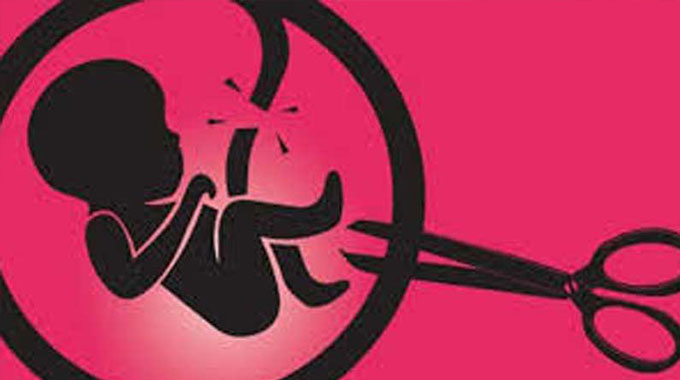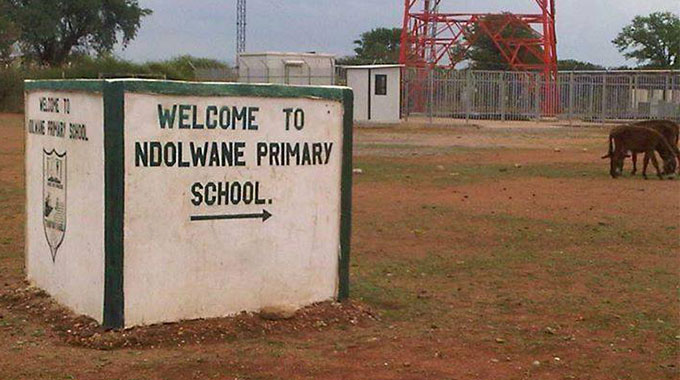Illegal but thriving: The sad reality of abortion in Zimbabwe

Andile Tshuma
The Termination of Pregnancy Act in Zimbabwe outlaws abortion and sets steep fines and up to five years imprisonment for the offence, yet illegal abortions thrive, some successful, others leading to loss of life.
In the still of the night, Hazel continues to have flashbacks of a horrific fortnight she endured after an abortion gone wrong.
Being a tertiary student at one of the city’s universities, she was just coming back from industrial attachment in Harare and going for her final year. She discovered she was pregnant from a fling with a Harare colleague where she completed her internship. She could not gamble with the upcoming final year of varsity and its academic and financial pressures and her broken family.
Through a friend of a friend, at campus, she got connected to a doctor who could make her problem go away in hours. She only needed US$150. She had a little savings and went through with the process. She was given antibiotics, pain killers, mifepristone and misoprostol tablets for termination. The bleeding would not stop, till day seven and beyond. She got a fever, had weird coloured clothes and ended up in hospital. The doctor helped her escape prosecution. It is an experience she desperately needs to forget as she expects to graduate in the next few months. Life has to go on.
But, some women are not as lucky as she is, and things can go really, really wrong.
Last month, a 22-year-old university student in Harare was reported to have died after trying to terminate a pregnancy using a coat hanger.
A case was heard in October of a Lobengula suburb woman who aborted and dumped the foetus along Masiyephambili Drive. She appeared before Western Commonage magistrate Stephen Ndlovu. The case is ongoing as her continuation of trial has been set for next week.
The time to discuss unsafe abortions has never been more urgent in Zimbabwe, where nearly all abortions are clandestine and approximately 40 percent of these abortions result in complications such as severe bleeding, infection and even death.
Though the exact figures of women and girls who have died from unsafe abortions is not known, a recent study showed that abortions are the fifth leading cause of pregnancy related deaths in Zimbabwe.
The situation is made worse by the Termination of Pregnancy Act which has been described as restrictive to the extremes, only allowing abortion in the following situations – for rape and incest survivors, if the condition of the expectant mother is at risk, or if the foetus is deformed in such a way that it will not survive after birth.
Implementation of this law also presents challenges, which include the need for doctor’s appointments and delayed court processes.
This further perpetuates deaths from unsafe abortion as women at times choose not to follow the lengthy and painful legal route.
As society mourns those who have died, it is an opportune time to plan for the future based on the lessons that have been learnt. Some women choose to illegally terminate pregnancy as a way to avoid potential gender-based violence (GBV) scenarios at home, where fathers may not want the child. It puts them at risk of doing whatever is possible to protect themselves from GBV and from being resented for bringing a unwanted child to the world.
It is imperative to realise that restrictive abortion laws kill women, and the poor are disproportionately affected. Zimbabwean women who can afford, are making the great trek to South Africa where abortion is legal.
On the contrary, those who don’t have that option seek out illegal providers who employ unsafe procedures that have a high rate of dangerous and potentially deadly complications, like heavy bleeding and infections and even death.
In Zimbabwe, the poor suffer the most. In fact, the world over, restrictive laws make access to safe abortions a class issue. Those with the means can just go to a land where abortion is legal. Those without the means will do whatever is within their means to have the procedure done. It is high time that society starts a dialogue on this issue knowing that legal or not, abortion is happening right in our backyards.
A 2016 study of the situation in Zimbabwe from experts at the Guttmacher Institute in New York, Zimbabwe’s Ministry of Health and the University of Zimbabwe estimated that over 65 000 abortions were performed in 2016. Most of them were unsafe and poor women were most likely to experience the worst complications.
Zimbabwe has a high rate of pregnancy-related deaths, one of the highest in Africa, and unsafe abortions are among the leading causes.
Secondly, if a system restricts abortions, it should be prepared for a high demand for health services to treat complications arising from the inevitable increase in unsafe abortions and the extra costs that they generate for the healthcare system.
Zimbabwe has a post-abortion care programme where women who have unsafe abortions can get treatment for complications.
It is good that we have such a programme, but the better policy, from a fiscal and moral standpoint, is to give women access to safe abortions.
The cost of treating someone who has had an unsafe abortion is much more than the cost or providing a safe abortion. A study done in Zambia proves this: women who sought a safe abortion incurred the lowest overall costs, US$52,60, and women who sought post-abortion care following an unsafe abortion had to pay over 50 percent more, US$82,40.
It is only when someone is faced with a difficult situation that they appreciate the need for safe abortion services.
The evidence is clear. Restricting access to abortions increases the number of unsafe abortions, burdening the public health system.
The International Safe Abortion Day which was commemorated in September was a time to consider reviewing the current Termination of Pregnancy Act.
It is also important to consider making contraceptives readily available to young people so they can avoid the unwanted pregnancies that lead to unsafe abortion or even death. – @andile_tshuma












Comments